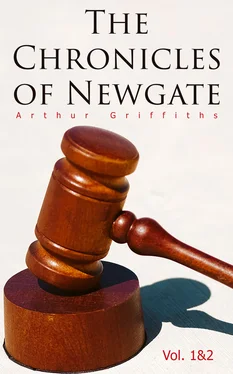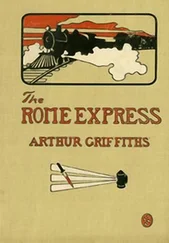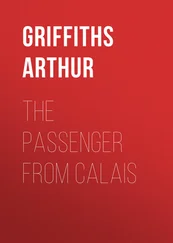There are other cases of imprisonment more or less arbitrary in these troubled times. Another petition may be quoted, that of Richard Overton, “a prisoner in the most contemptible gaol of Newgate,” under an order of the House of Lords. Overton tells us how he was brought before that House “in a warlike manner, under pretence of a criminal fact, and called upon to answer interrogations concerning himself which he conceived to be illegal and contrary to the national rights, freedoms, and properties of the free commoners of England, confirmed to them by Magna Charta, the Petition of Right, and the Act for the Abolishment of the Star Chamber.” Overton was therefore emboldened to refuse subjection to the said House. He was adjudged guilty of contempt, and committed to Newgate, where he was seemingly doomed to lie until their lordships’ pleasure shall be further signified, which “may be perpetual if they please, and may have their wills, for your petitioner humbly conceiveth that he is made a prisoner to their wills, not to the law, except their wills may be a law.” On this account he appealed to the Commons “as the most sovereign Court of Judicature in the land,” claiming from them “repossession of his just liberty and freedom, or else that he may undergo the penalty prescribed by the law if he be found a transgressor.” Whether Overton was supported by the Commons against the Lords does not appear, but within three years the Lower House abolished the House of Peers.
Here is yet another petition from a better known inmate of Newgate, the obstinately independent Colonel Lilburne, commonly called “Freeborn John.” Lilburne was always at loggerheads with the government of the city. In 1637, when following the trade of bookseller, he was convicted by the Star Chamber for publishing seditious libels, and sentenced to the pillory, imprisonment, and a fine of £5000. In 1645 he falls foul of the Parliament, and writes a new treatise, calling in question their power. For this, although he had already done good service to the Parliamentary cause and had earned the grade of Lieutenant-Colonel in the field, he is first questioned, then sent to Newgate. He dates from thence, in 1646, a letter to Mr. Wollaston, the keeper of Newgate, or his deputy. He states that he has seen a warrant commanding the keeper to produce him before the House of Lords, but that the warrant expresses no reason why he should “dance attendance before them,” nor does he know any reason why he should, or any law that compels him thereto. The Lords had already endeavoured illegally to try him, a commoner, before their bar, for which, under hand and seal, he protested to their faces against them as violent and illegal encroachers upon his rights and liberties, and appealed to the proper tribunal, the Commons, for which appeal he was arbitrarily committed to gaol. Lilburne goes on to say—
“Sir, I am a freeman of England, and therefore I am not to be used as a slave or vassal by the Lords, which they have already done, and would further do; I also am a man of peace and quietness, and desire not to molest any, if I be not forced thereunto, therefore I desire you, as you tender my good and your own, take this for an answer, that I cannot, without turning traitor to my liberty, dance attendance to their lordships’ bar, being bound in conscience, duty to God, myself, thine, and my country, to oppose their encroachments to the death, which, by the strength of God, I am resolved to do. Sir, you may, or cause to be exercised upon me some force or violence to pull and drag me out of my chamber, which I am resolved to maintain as long as I can, before I will be compelled to go before them; and therefore I desire you, in a friendly way, to be wise and considerate before you do that which, it may be, you can never undo.
“Sir, I am your true and fair-conditioned prisoner, if you will be so to me,
“John Lilburne.
“From my cock-loft in the press-yard of Newgate, 23rd June, 1646.”
Lilburne was eventually banished by the Rump Parliament; but in 1653 he returned to England, and threw himself upon the tender mercies of the Protector. Cromwell would do nothing, and left him to the law. Lilburne was then arrested, and committed to Newgate. At the next sessions he was arraigned, but refused to plead unless furnished with a copy of his indictment. He managed to put off his trial by various expedients till the next sessions, when he was acquitted by the jury. In Thurloe’s State papers it is stated that “John Lilburne was five times at his trial at the Sessions House, where he most courageously defended himself from Mr. Stale, the recorder’s, violent assaults with his old buckler, Magna Charta, so that they have let him alone.” “Freeborn John” was so popular with malcontents of all shades of opinion, that the authorities, from Oliver Cromwell downward, were really afraid of him. Oliver professed to be enraged against him, and anxious for his punishment, yet he privately paid him a pension equal to the pay of a Lieutenant-Colonel, and, as Thurloe says, “thought the fellow so considerable, that during the time of his trial he kept three regiments continually under arms at St. James’.” The jury which acquitted Lilburne were summoned to answer for their conduct before the Council of State. Yet there is little doubt that the court was overawed by the mob. For Thurloe says there were six or seven hundred men at the trial, with swords, pistols, bills, daggers, and other instruments, that, in case they had not cleared him, they would have employed in his defence. The joy and acclamation was so great after he was acquitted, that the shout was heard an English mile.
The mob had been turbulent enough to give cause for alarm on a previous occasion. Four or five years previously the puritanical zeal of the Lords had produced a stringent ordinance against tippling and gaming on the Lord’s Day. This occasioned a great tumult, which originated in Moorfields, and agitated the metropolis for a couple of days. It is said that, but for the vigorous action of Fairfax, the Government would have been overthrown. The people mastered a part of the trainbands, seized their drums and colours, beat up for recruits, then forming into something like military order, they surprised Newgate and Ludgate in the night, and seized the keys. The rioters divided into two parties: one marched upon Whitehall, but were discomfited en route ; the other ranged the city, possessing themselves of ordnance, arms, and ammunition. Prompt measures were, however, taken at a council of war, and Fairfax, entering the city at the head of two regiments, put several to the sword, took many prisoners, and dispersed the rest.
The transfer of power to the Commonwealth is significantly recorded in the annals of Newgate. A whole batch of warrants are to be found in the State papers about 1649, ordering the committal of persons charged with being in arms against the Parliament—the offenders are mostly military officers. Thus the keeper of Newgate, Richard Dicke by name, is commanded to receive Lieutenant-Colonel Clarke, Major Wright, and Captain Wescott; also Lieutenant Gage, Robert Wood, pilot, and Robert Parker, taken in a man of war, all charged with levying war. Again, the Commonwealth directs W. Roberts to be sent to Newgate for being an agent of the proclaimed King of Scotland. Later on, Colonel Clarke, already mentioned, was released on his signing the test, and finding securities for good behaviour. Captain Matthew Harrison is committed for bearing arms against the Parliament, and “drinking a health to Charles, the late king’s son, by name King Charles II.” The recorder is directed to examine Colonel Jones concerning Captain Harrison, and to see that he be proceeded against according to law. A declaration is made before the Council of State as to Charles Pullen, “lately a prisoner in Newgate,” committed there for being found in the Hart frigate. Pullen had escaped from prison, and was liable to the penalty of death if recaptured; but the council remit the penalty in order to exchange Pullen for Ensign Wright, a prisoner at Jersey. In Nov. 1650 John Jolfe is committed to Newgate for carrying the Roebuck out of the Commonwealth. Royalist sympathizers find but scant comfort. The keeper of Newgate is ordered to receive and imprison one Pate, and hold him in safe custody, for aiding Lieutenant-General Middleton to escape from the Tower; and a similar warrant is made out against Mitchell for being accessory to the escape of Colonel Edward Massey from the same place.
Читать дальше












